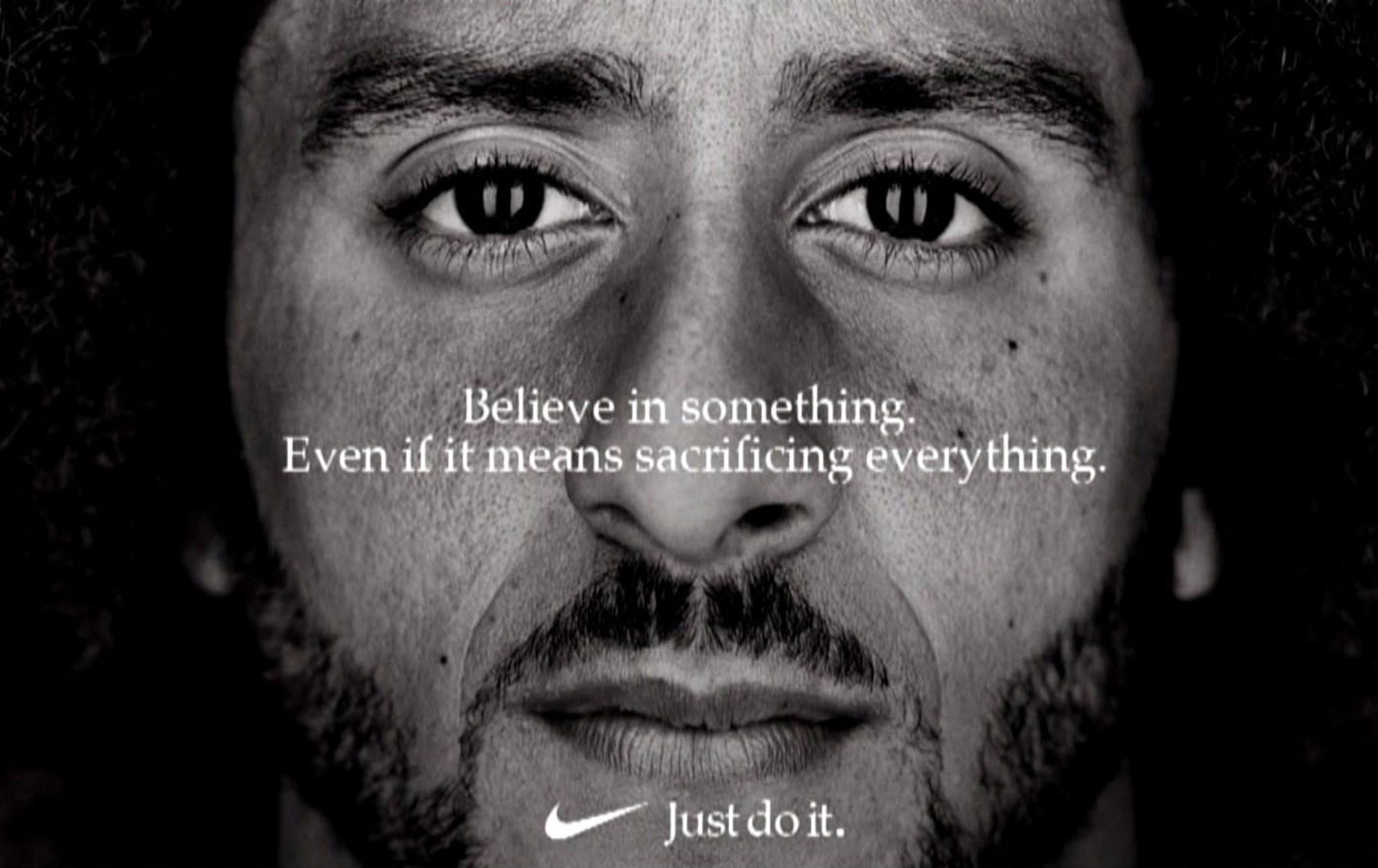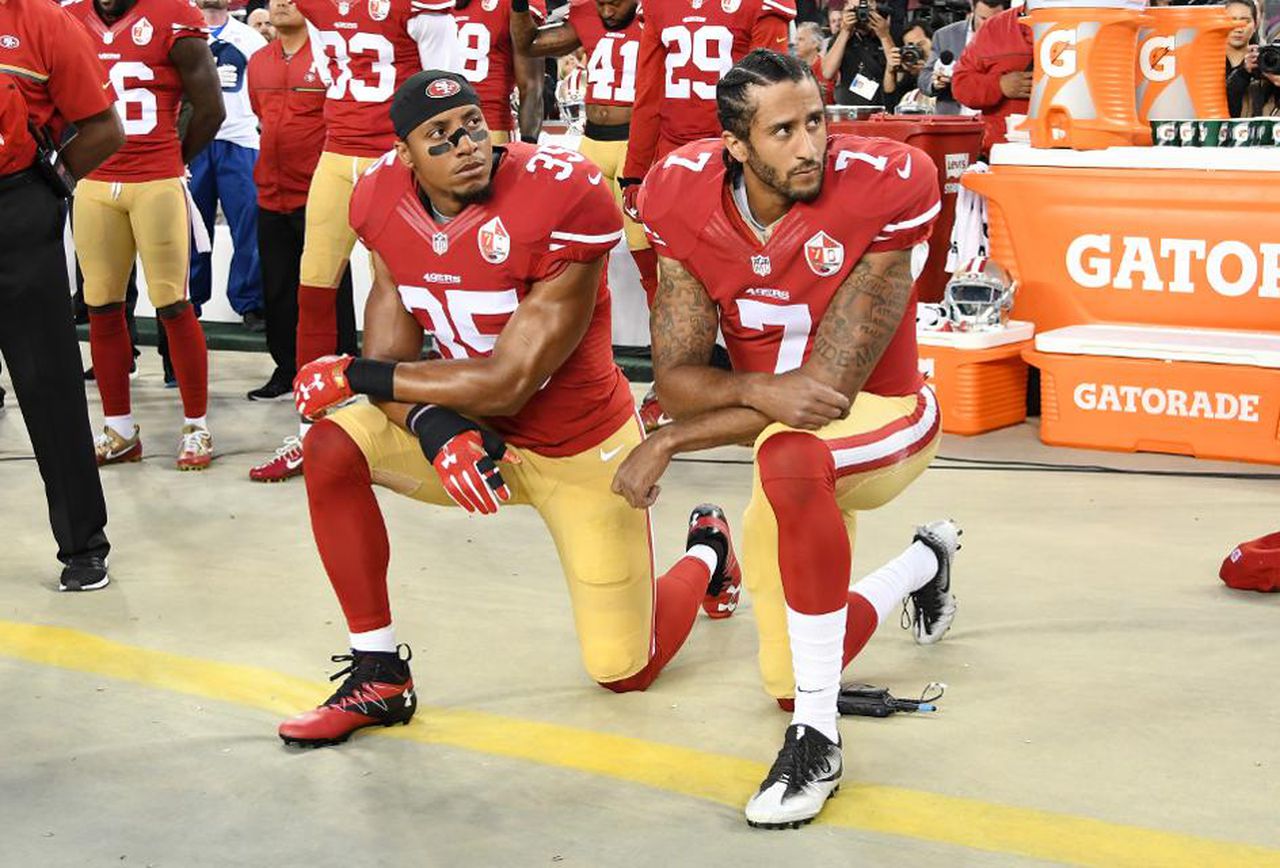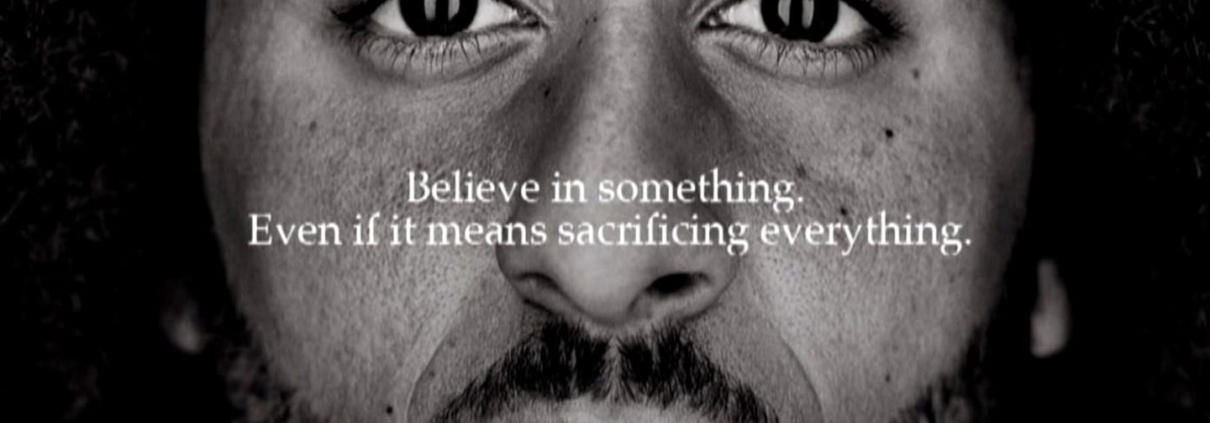A Lesson in Listening: What can be learned from the NFL’s response to Colin Kaepernick and #TakeAKnee
A hallmark of effective leadership and crisis response is the ability to learn from others’ mistakes without directly experiencing the pain from those mistakes to learn the lesson. Nike’s latest ad campaign returns to the fore a simmering issue regarding the National Football League (NFL) and its senior leaders’ response to former San Francisco 49ers’ quarterback Colin Kaepernick, who began kneeling (hence #TakeAKnee) during the singing of the national anthem at the start of NFL games in the 2016 season to protest racial inequality and police brutality against people of color. A handful of other players joined him in the demonstrations, drawing much public attention some of which included ire from fans toward Kaepernick for bringing sociopolitical issues onto the field. The NFL leaders did not issue a unified response on the matter at the time, in effect allowing tension and toxicity to fester. The only official statement from the NFL came in May of this year, nearly two years after #TakeAKnee began, from commissioner Roger Goodell; the statement mandates players on the field must stand for the national anthem or be fined for failing to comply, and players who wish not to stand for the anthem must do so off the field.
Kaepernick’s social activism has potentially cost him his career as a professional athlete, something Nike, the NFL’s official apparel sponsor and a global influencer in the sports world, not-so-subtly references in the new ad. Kaepernick has been a free agent since March 2017 and is currently suing the NFL for colluding to keep him off the field because of his social activism. The NFL leaders’ inadequate response to Kaepernick and the broader issues he raises, is ripe with important lessons on how leaders can better protect and even enhance their organizations by listening and responding constructively to criticism.

Nike’s latest ad featuring former NFL quarterback Colin Kaepernick. Kaepernick is suing the NFL for colluding to keep him off the field because of his efforts as a social activist.
It is essential to clarify that Colin Kaepernick’s #TakeAKnee protest is against racial inequality in the United States embodied in part by police brutality against people of color, and not against the NFL directly. Kaepernick implicated his employer however, by using NFL football games as the medium to demonstrate his protests. On one side, there are arguments that the NFL is not responsible for addressing racial inequality and the singing of the national anthem during NFL football games is an inappropriate medium for such demonstrations. On another side, there are arguments that because African American men comprise the overwhelming majority of NFL players, the NFL as a whole and its leaders should demonstrably express care. Their players – and by default, African American men, are perhaps one of the NFL’s most important stakeholder groups; there would be no NFL without its players. Issues affecting players by extension affect NFL leadership.

Kaepernick and a teammate kneeling in protest during the national anthem during a 2016-2017 NFL season game.
Nike endorsing Kaepernick with its new ad only escalates controversy for the NFL at a time when it is facing a collusion lawsuit from Kaepernick that is advancing in light of sufficient evidence. The NFL finds itself at the center of a conversation it does not want to be a part of, but now has no choice to fully confront. As of this writing, the NFL has issued a milquetoast statement in response to the Nike/Kaepernick ad, saying in part “the social justice issues that Colin and other professional athletes have raised deserve our attention and action.” Had this statement been issued in 2016 it may have been sufficient coupled with the attention and action it promises, but as of today it is not enough. The NFL’s leaders could have (and almost certainly now realize, should have) made different choices at the onset of #TakeAKnee.
Below are three guiding principles that can help leaders to not only diminish the harmful effects of reputational firestorms, but to protect and perhaps even strengthen their organizations’ reputations in times of public controversy:
Listen. Employees are becoming increasingly vocal when it comes to expressing dissent against their employers’ actions (see Google’s latest drama with employee pushback for just one example of many). This may draw eyerolls, including from leaders who protest “I don’t have time to listen to their whining!” The eye-rollers ought to consider two things. First, that employee pushback is what gave us the 40-hour work week, weekends, and fair wages. Second, is it possible for an organization to deliver effectively on its promises to shareholders and/or customers without the trust and support of its employees? No, it is not. It is for this reason that employees are arguably an organization’s most important stakeholder group. So, leaders should listen to their employees’ serious and consequential concerns (read: not every single one; that is what HR is for). Again, taking into account the racial demographics of NFL players, the specific issues Kaepernick was and is calling attention to, coupled with the amount of national attention his protests were getting, it was shortsighted and ultimately self-harmful for the NFL’s leaders to not listen to their employees’ concerns.
Compromise. The NFL’s leaders and its players have many shared interests, an obvious one being the healthy continuation and advancement of the sport; if this objective is not achieved, both groups are out of jobs. The healthy continuation and advancement of the sport could include minimizing distractions to games, in part by keeping sociopolitical issues off the playing field. It could also include actively addressing (off the field, to not distract from games) serious sociopolitical issues that affect the wellbeing of a majority of the NFL’s employees. One way this could take form is in the NFL giving substantial donations to relevant causes, like Black Lives Matter; another is for the NFL to give their players outlets to tackle these issues in ways that do not impact the games themselves, by partnering with organizations, or starting its own, devoted to addressing these problems.
Follow through. Whatever is achieved through listening and compromising must be tangibly followed through on, otherwise it is a waste of time. One need only look at Google’s aforementioned latest fiasco with employee pushback to see how harmful listening and compromising without follow through can be; Google employees protested in March against the company’s work with the Department of Defense to enhance the accuracy of drone strikes using AI, stating the project’s objective is antithetical to Google’s values. Google’s leaders compromised by pledging not to renew the contract with the DoD once it expires in 2019. Google CEO Sundar Pichai also published a blog post listing four uses of AI Google will not pursue. Two months after this list was published, it came to employees’ attention that senior leaders approved a secret project that directly implicates the four uses the CEO himself listed. Follow through is everything because without it, listening and compromise are nothing.
It is possible had Roger Goodell and other NFL leaders met with Colin Kaepernick and other players in a timely manner to discuss their concerns that Goodell would have saved his organization a lot of difficulty. To be clear, Goodell invited Kaepernick for a one-on-one discussion in October 2017, more than a year after #TakeAKnee began and after Kaepernick filed a colluding grievance against the league. Goodell may even have been able to do the NFL a lot of good, by advancing its corporate social responsibility efforts, and its reputation, by responding to issues relevant to its players and by extension the organization. But for that to happen, the first step is for leaders to listen.




Leave a Reply
Want to join the discussion?Feel free to contribute!